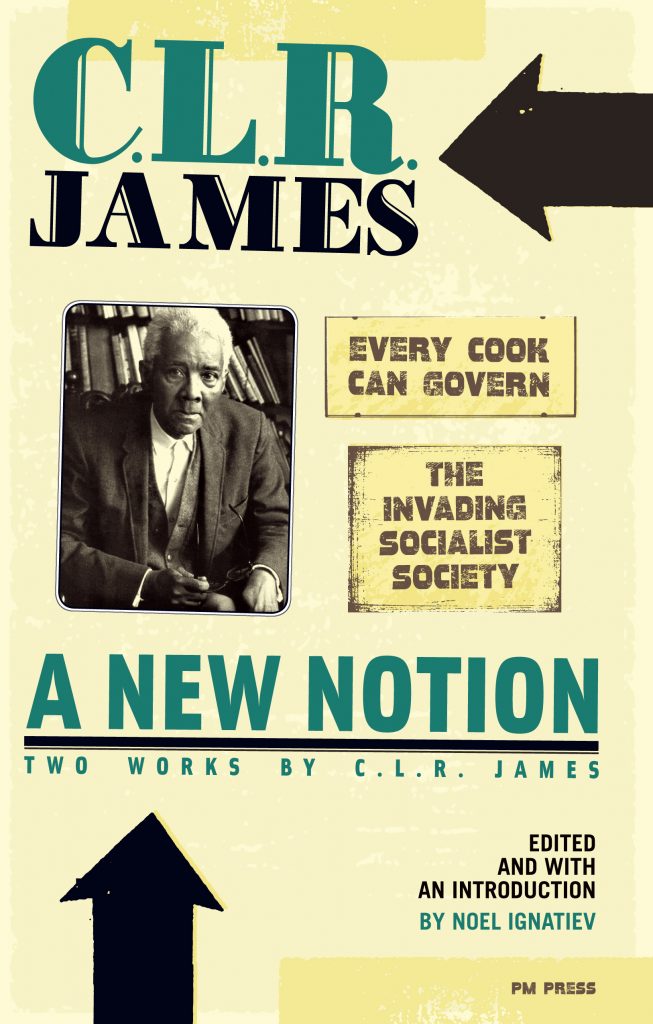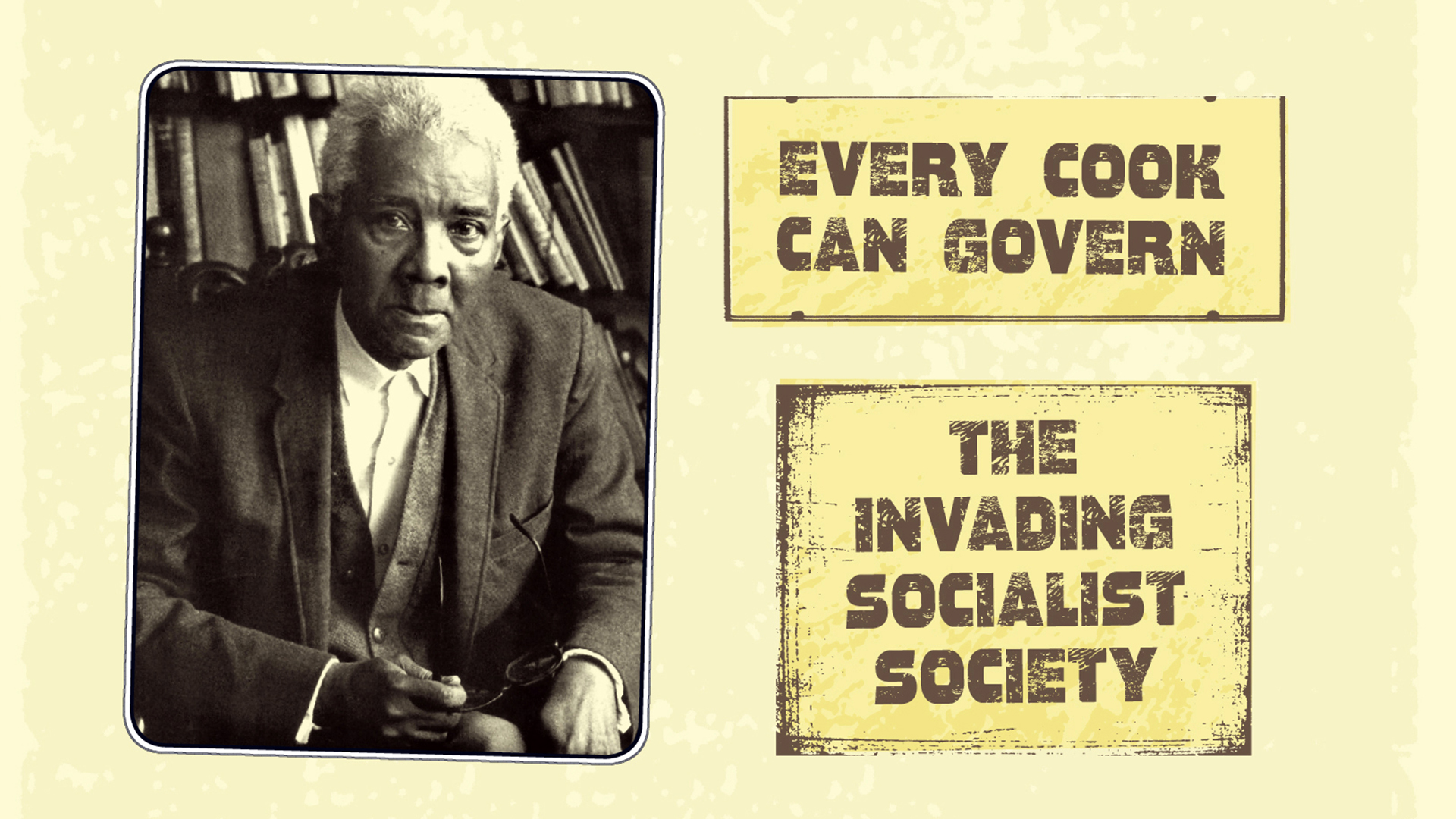
By Paul Buhle
Swans Commentary
July 2, 2012
In the twenty-three years since the death of C.L.R. James (1901-1989), the drumbeat of new books describing and anthologizing his writings has been steady and at times almost deafening to those who listen with rapt attention. Not that the books are in any way unwelcome, or in danger of exhausting the canon (next fall actually sees the appearance of Toussaint L’Ouverture, the 1936 play performed in England but never before published, by Duke University Press). Nor that the waning of deconstruction, once the major source of new books and essays on James, is anything but welcome. But keeping up is at best a chore. As the authorized biographer of James, it is a chore that I cannot quite abandon for very long without guilt.
The volume in question has been on my desk for a while. The two essays that make up its contents, “Every Cook Can Govern” and “The Invading Socialist Society,” were originally pamphlets of a tiny Trotskyist or post-Trotskyist tendency, loyally reprinted by Martin Glaberman in Detroit but otherwise mostly unavailable. They are not, in other words, among the big favorites of James’s many and varied work.
Why? The first puts forward the notion, grown unpopular in an age of studies of slave societies, that Greek Antiquity offers a model in democratic practice; and the latter a notion even more seemingly improbable for a post-industrial age, that blue-collar life, especially factory life, is moving inexorably toward socialist society.
The latter is easier to grapple with, and Noel Ignatiev (editor, in times long past, for Urgent Tasks, a journal that published the original C.L.R. James: His Life and Work, edited by myself, and constituting the first collective biography of the aging giant) makes the case for James’s logic. It’s actually a good argument, in the sense of being deeply provocative. To quote Ignatiev: “For James, the starting point was that the working class is revolutionary. He did not mean that it is potentially revolutionary or that it is revolutionary when imbued with correct ideas, or when led by the proper vanguard party. He said the working class is revolutionary and that its daily activities constitute the revolutionary process in modern society.”
Here is a logic, deep in Marx’s own writings and for many on the left, credible before the First World War but hardly afterward. And ever less credible with the post Second World War recovery of capitalism, the spread of the consumer society to the working class, and finally the deindustrialization process along with the retreat of unions to the margins, except perhaps in government.
To make these objections, as reasonable as they sound, is not to diminish the interest and value of James’s two essays. The return of Marxism, especially Marx’s own works to public attention, in light of the global financial crisis and widespread impoverishment, has not raised enough interest yet in C.L.R. James’s main theoretical innovation. He insisted against the claims of Communists in the East and Social Democratic in the West, that the basic issue was not State ownership of the means of production, but rather the social relations of the producers. That is to say, until the economic side of society can be truly democratized, crisis in one form or another (ecological devastation, for instance: another side of alienated labor) will always be on the horizon. This is the heart of at least a good chunk of Marx’s own logic and James drives the message home, even amid much outdated language and polemic against various and now forgotten left thinkers of the 1940s-50s.
Back to Paul Buhle’s Editor Page | Back to C.L.R. James’ Author Page | Back to Noel Ignatiev’s Author Page






